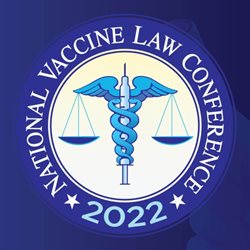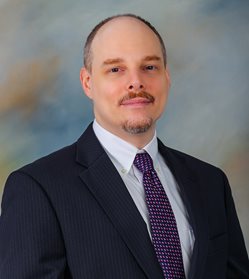Issues & Trends
From Mandates to Exemptions to Misinformation, Vaccine Law Conference Addresses Top Legal Issues
August 12, 2022
On September 15–16 George Mason University’s Antonin Scalia Law School will hold the first annual National Vaccine Law Conference to address a range of timely issues that attorneys face in this emerging area of law. Programming will cover the legal structures associated with fair and equitable prioritization in the distribution of vaccines; public and private vaccination mandates and their exceptions and accommodations; opposition to vaccination and online misinformation; and vaccine injuries, compensation systems, and opportunities for representing clients asserting injuries.
Vaccine Law Conference to address a range of timely issues that attorneys face in this emerging area of law. Programming will cover the legal structures associated with fair and equitable prioritization in the distribution of vaccines; public and private vaccination mandates and their exceptions and accommodations; opposition to vaccination and online misinformation; and vaccine injuries, compensation systems, and opportunities for representing clients asserting injuries.
The D.C. Bar, a cosponsor of the event, recently spoke with Brian Dean Abramson, conference chair and adjunct professor of vaccine law at Florida International University College of Law, about what’s in store for attendees and the issues around the growing practice of vaccine law.
What is vaccine law?
To me, vaccine law is everything in the law that specifically touches upon vaccines and vaccination. Vaccination law deals with health law and employment law, generally. It involves issues relating to vaccine requirements — school vaccine mandates, employer mandates, medical exemptions, religious exemptions — and, of course, regulatory issues, intellectual property issues, international vaccine law issues, funding, and distribution questions.
What vaccine law issues will the conference cover?
When I published my treatise on vaccination law in 2018 [Vaccine, Vaccination, and Immunization Law], I only had a couple of paragraphs about employment law because most of the concern about vaccines and vaccinations, historically, were centered around school mandates. Employment mandates have existed for over a century and there have been cases and . . . newspaper articles about them, but until recently there was a longstanding idea that employers could require employees to be vaccinated. It was just understood that employers could choose who they were going to employ and that vaccination could be a condition of employment.
It's only in recent decades that federal regimes have been erected that allow people to avoid vaccination based on the assertion that they have a medical condition preventing them from being vaccinated and that constitutes a disability under the Americans With Disabilities Act [ADA]. Or they have a religious objection to vaccination and [argue] that [vaccination] requirements amount to religious discrimination under the Civil Rights Act of 1964.
on the assertion that they have a medical condition preventing them from being vaccinated and that constitutes a disability under the Americans With Disabilities Act [ADA]. Or they have a religious objection to vaccination and [argue] that [vaccination] requirements amount to religious discrimination under the Civil Rights Act of 1964.
In the decades before that, there are very few cases in which someone says that their employer requires that they be vaccinated, and they object to that requirement. You see a couple of cases in which someone says that they were required to receive a vaccination, were injured by it, and wants compensation. Courts generally said that if you chose not to be vaccinated, you could go find another employer.
The ADA was not enacted with vaccination in mind as a condition. The Civil Rights Act was not enacted with religious objections to vaccination in mind. Of course, the courts have certainly found [the acts] to be applicable to [vaccines], and that has created a lot of questions for employers. We have several sessions in our conference addressing those questions.
One session [is] focused entirely on medical exemptions [and] another devoted just to religious exemptions. Nobody else has had an opportunity to address [these issues] in such depth.
We also have two lengthy panels about vaccine injury compensation: one on the National Vaccine Injury Compensation Program [NVICP] and another on compensation structures outside of the NVICP, which doesn’t cover COVID-19. COVID-19 vaccines are under a different program called the Countermeasures Injury Compensation Program. Other vaccines may fall under workers’ compensation or the traditional tort system.
We have declining rates of childhood vaccination. We’ve had a substantial decline throughout the pandemic ... because people simply weren’t taking their children to see the doctor because of concerns over the possibility of the transmission of COVID, but more recently because people are getting a lot of misinformation about vaccines or subjected to messaging about vaccines that is making them wary of . . . childhood vaccines that have been in use for decades.
There are parts of the country where we have seen, in recent years, [a significant] increase in requests for exemption from vaccination, and we are certainly at a point where, if vaccination rates were to continue to drop to that degree, we would see the resurgence of childhood diseases that had previously been eradicated in this country, such as measles, mumps, and diphtheria, and potentially polio.
How will the conference address vaccine misinformation?
We are having an exclusive screening of a documentary about the anti-vaccine movement, Virulent: The Vaccine War. The producer of that documentary . . . pointed out to me that COVID-19 has been the crisis that the anti-vaccine movement had been waiting for. They were poised to take advantage of it and have taken advantage of it very effectively.
Antivax messaging has been very persuasive. Information inevitably develops over the course of a pandemic. If you want to be nefarious, you can take the [change in] information and frame it as proof of wrongdoing, put it on social media, and have it widely disseminated. Meanwhile, others are going through the much more time-consuming and painstaking process of developing the right explanation for new information.
Within the conference there are those with differing viewpoints — those who think the messaging hasn’t been handled well by the government and [those who have] differences of opinion about how licensure should be carried out and whether there should be patent waivers granted.
We have one participant in a panel who has staked out a position in favor of natural immunity to COVID, in particular, and it’s important that we have that view represented and out in the open rather than having a conference that is ideologically monotone and everyone has the same opinion on everything.
Through our roundtable discussions we hope to establish some best practices and standards for how we, as experts in the field, think that different aspects of vaccine law should be carried out, particularly with respect to mandates and exemptions. That’s a table you want to have a seat at. We will be publishing our proceedings and our determinations once the conference is concluded.
How can people register for the conference?
Registration for the event can be completed on our website, vaccinelawconference.org. Space is limited, so we encourage early registration. We chose to hold the conference at a law school rather than a convention center for its proximity to academia and to reduce the expense.
However, we are working to ensure accessibility for those interested. We’ve created a highly discounted rate to allow public health officials around the country to attend the conference virtually. There’s a discount of more than 50 percent for government employees, students, and academics and a discount of about 75 percent for the virtual attendance of county, state, or municipal public health officials dealing with vaccination issues.
This isn’t going to be a conference that makes money. Those of us who have been organizing it have paid for a lot of this out of our own pockets. We are still soliciting sponsors and grants and so forth, but overall the idea is to use this as an opportunity to disseminate information and allow for people to participate in the widest possible and practical manner, so we can get to the heart of the current public health crisis.
Click here to register to attend the National Vaccine Law Conference in-person or virtually.


